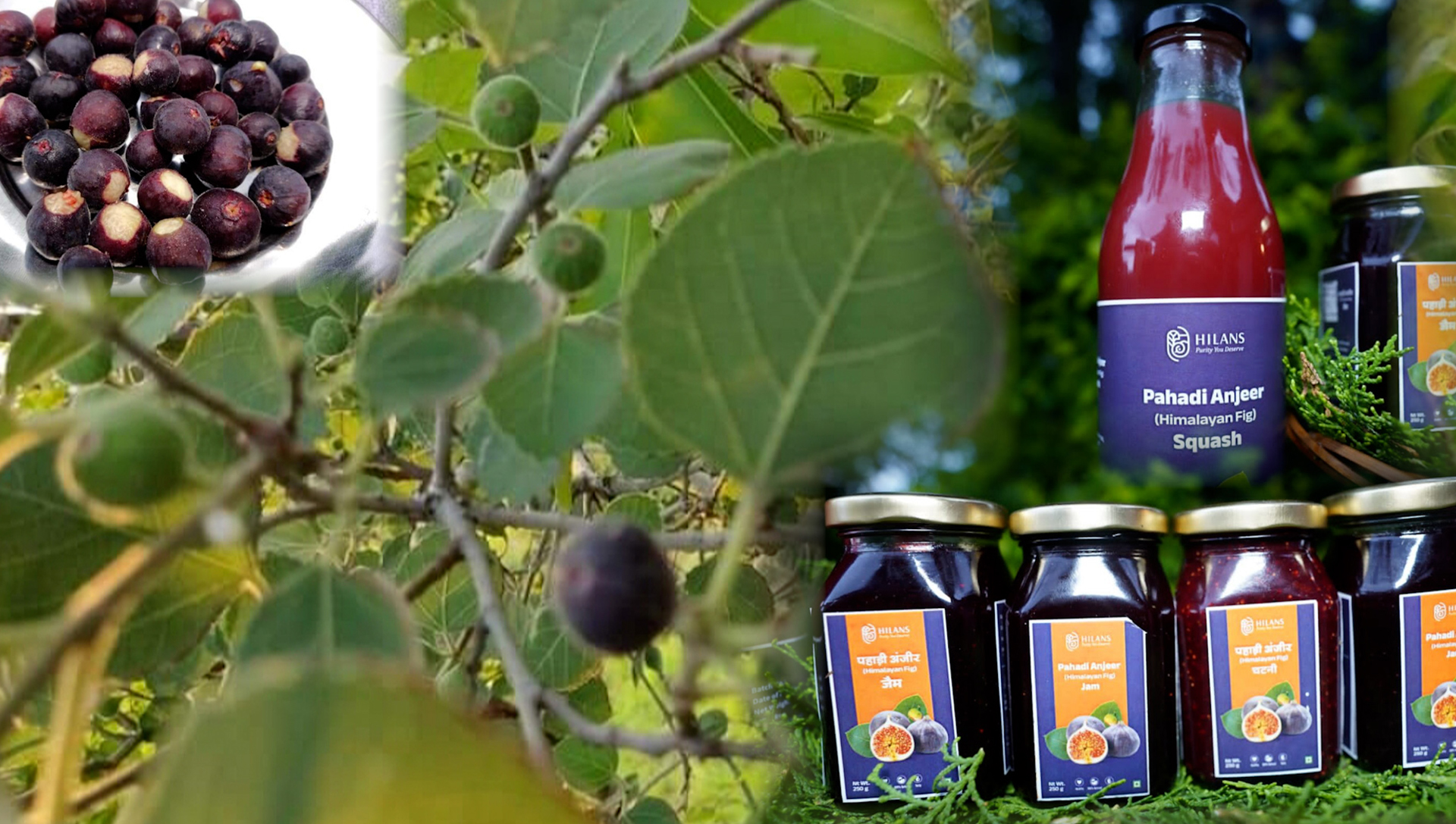DEHRADUN: Some of us must have come across the renowned Kumaoni folk song ‘Bedu Pako Bara Masa’ (Figs do ripen round the year). It is also the official song of the Kumaon Regiment of the Indian army.
‘Bedu’ – the Wild Himalayan Fig – is now ready to invade our platter and palate in the form of jam, juice and chutney under the initiative of the district magistrate of Pithoragarh.
Talking to The New Indian, Ashish Chauhan, DM Pithoragarh said, “Bedu which is a kind of fig which carries multiple health benefits has been part of culture and tradition of Uttarakhand. We have launched these products to market on a commercial scale which will help generate employment for the local people. It will also cater a slice of natural abundance, culture and tradition of the state to the people of India.”
Rekha Devi, from Faatsiling village of Pithoragarh, who has been actively involved in the initiative harvesting the fruit, extraction of juice, processing and making of jam and chutney says, “We used to consume Bedu just like that and never thought this can be the source of our income. Now, we are aware of the ways we can make good money out of the fruit harvest.”
The wild Himalayan fig is common in the forests and villages of Uttarakhand. It also carried health benefits such as treatment of nervous system disorders, cleaning blood, curing hypertension, hepatic diseases, constipation, lung disorder and urinary diseases. Only the fruits but the entire plant are used, which is helpful in the prevention of many diseases. It is also a good antioxidant, which is also used in to cure many diseases.
A full-grown tree can produce up to 25 kilograms of fruit in one season. Purple or black ripe bedu is usually consumed with soaked flavoured salt in the hills of Uttarakhand.
The initiative has been taken by the DM under ‘Hilans’, a brand of the state government by Uttarakhand Gramya Vikas Samiti (UGVS) to market the state’s farmer produce across the world. At present, more than 50 unique products include Himalayan red rice, pulses, spices, hemp seeds, kidney beans and many more from nine districts of the hill state.

